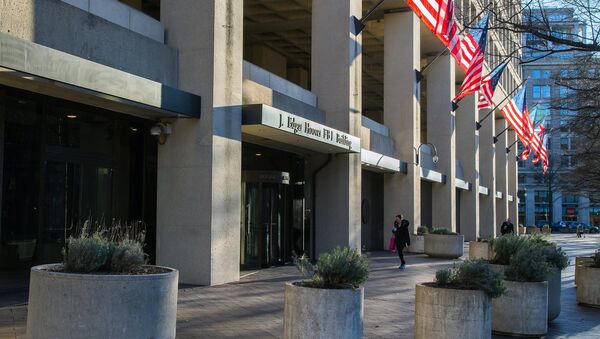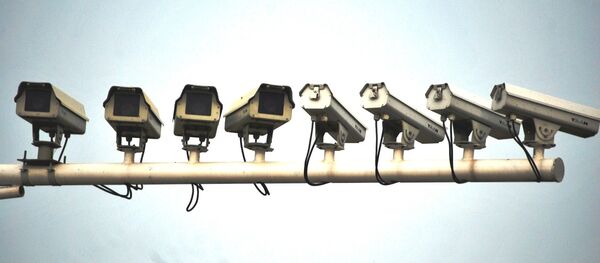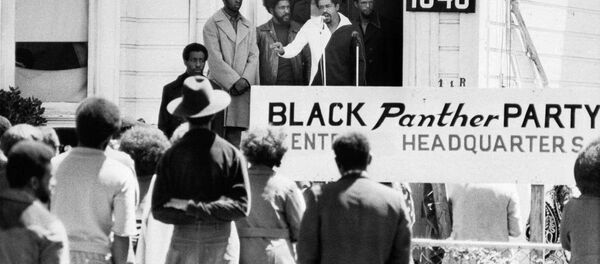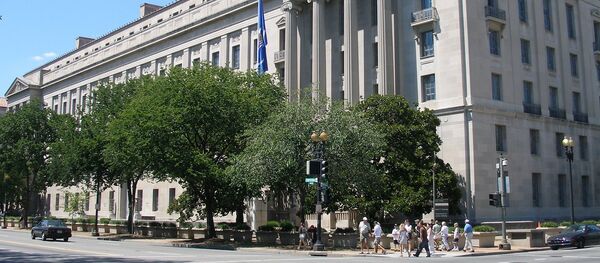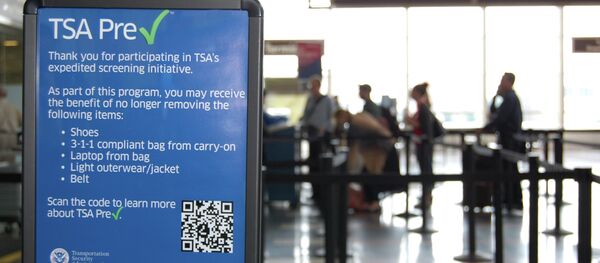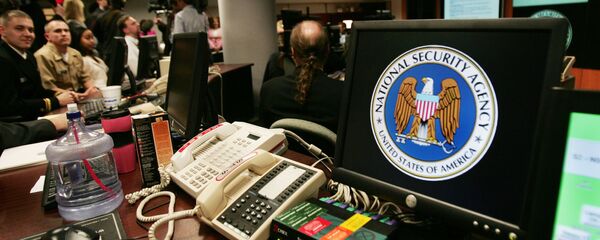Until now, it had only been suspected that FISA court orders were being used to target journalists for surveillance — but now there's a much better reason to believe so, thanks to these nonprofits' lawsuit.
The DOJ determined that 14 pages from six documents, dating from February 2014 to March 2015, "containing records responsive" to the groups' request were "appropriate for release with excisions," the release reads. The Freedom of the Press Foundation highlighted the most revealing passage, in a March 19, 2015, memo from then-Attorney General Eric Holder, as follows:
"This memorandum directs the National Security Division (‘NSD') to implement the following procedures that are designed to ensure that the Attorney General (‘AG') or Deputy Attorney General (‘DAG') reviews those FISA applications targeting known media entities or known members of the media, so that review of such FISA applications occurs at even higher levels than otherwise permitted by FISA and existing AG orders."
That language, and the subsequent rules the memo lays out, heavily suggest that journalists have been subject to FISA court orders in the past and may be so now.
A number of questions remain unclear: how many times have FISA court orders targeted journalists? Why did the Justice Department keep these rules secret? If these rules can now be released to the public, why not those for National Security Letters that target journalists?
When seeking a warrant to investigate "media entities," the DOJ has two methods of approach: one that must prove the relevance of the monitoring to a greater investigation and must go through regular courts and be approved by the attorney general; and one that goes through the FISA court and, as far as we know, has no multi-part test to prevent abuse, but is justified for purposes of national interest.
The FISA court operates behind a veil of secrecy: its members, appointed by the chief justice of the US Supreme Court, are unknown, as are its rulings — that is, journalists being watched by the FBI or US intelligence are never alerted to that fact.
"The whole point of the media guidelines," Chip Gibbons, a policy and legislative counsel for Defending Rights & Dissent, told Radio Sputnik's By Any Means Necessary Tuesday, is that the DOJ acknowledges "that spying on journalists raises particularly pernicious issues."
"There's a lot of attempts to use the Foreign Agent Registration Act (FARA) to kill critical media right now. We know they've gone after Sputnik, we know they've gone after RT," and now Chinese outlets Xinhua and CGTN, Sputnik reported Tuesday. "So in theory if you're talking, as a source, to an RT or Sputnik reporter, and they're spying on that reporter as an agent of a foreign power, your stuff could be picked up," Gibbons told hosts Eugene Puryear and Sean Blackmon.
"We also know that when Al Jazeera was going to release this documentary that basically showed that members of the Israeli lobby in the US were collaborating with the Israeli government to spy on US activists, that members of Congress were talking about making Al Jazeera register under FARA. It can be used to silence dissent. It's not a non-issue — it's pretty scary," he said.
Former US President Barack Obama's administration prosecuted more whistleblowers than all preceding administrations combined under the Espionage Act, a law which Gibbons noted "is an act meant for spies and saboteurs, not people who give information to journalists. And there were also spying scandals involving actual journalists who were working with sources and whatnot."
As a result, Holder put forth new guidelines in 2015 that were more stringent. While the FBI can get permission via those strengthened court processes, Gibbons said, "that's not the only process by which the FBI and folks like that can spy on journalists," pointing to a provision of the Patriot Act called the National Security Letter.
"The National Security Letter provision of the Patriot Act radically expanded the FBI's authority to demand personal customer records from internet service providers, financial institutions and credit companies without prior court approval," the American Civil Liberties Union (ACLU) says. "Through NSLs the FBI can compile vast dossiers about innocent people and obtain sensitive information such as the web sites a person visits, a list of email addresses with which a person has corresponded, or even unmask the identity of a person who has posted anonymous speech on a political website. The provision also allows the FBI to forbid or ‘gag' anyone who receives an NSL from telling anyone about the record demand."
The ACLU has filed multiple lawsuits challenging the statute, which have resulted in numerous court rulings that found parts of it unconstitutional, including the librarian gag, which was ultimately removed.
Gibbons noted that much of what we know about these programs comes from whistleblowers, whom the government will go to great lengths to intimidate and punish, including charging them with espionage, a move the Obama administration fully embraced and US President Donald Trump's has as well.
"The idea that you have a statue that is designed for… people who are attacking national security and we're using it to prosecute people who, acting in what they believe to be the public interest, give information to other US citizens who are journalists in order for them to give that information to the public at large, is absolutely perverse and everyone should be up in arms about that."
Gibbons explained that the FISA court "came about in the late 1970s as a ‘reform' because we saw, thanks to the Church Committee, thanks to the Citizens Commission to Investigate the FBI, which was a group of anti-war activists who took it upon themselves to break into the FBI office and liberate the documents to prove the existence of COINTELPRO," an FBI program that spied on and disrupted left-wing political movements in the US, "we saw that the government was engaged in this awful surveillance. We saw that the NSA [National Security Agency] was doing what was called ‘Operation Shamrock,' where they were reading all of the telegrams" coming and going to the US from overseas.
"The response to that was to create the FISA court, which isn't as far as civil libertarians wanted to go, but it was supposed to be a reform. And in the intervening 40 years we've seen chipping away and more chipping away at what little reforms we got."
"The idea that you can pick out the US persons with bulk surveillance on the internet and only spy on the non-US persons is a complete legal fiction; it's not possible." He further pointed to the practice by the Five Eyes nations — the US, UK, Canada, Australia and New Zealand — of spying on each others' citizens and freely sharing that information with one another.
Pointing out how before FISA, the FBI openly and blatantly spied on groups and persons for their political beliefs, and that today a number of activist groups, from environmentalists and anti-fracking activists to the Black Lives Matter movement — members of which have been designated as "Black Identity Extremists" — have been spied on by the FBI under the aegis of counter-terrorism, Gibbons asked, "Who's to say they're not using this power against those groups… now that they have another tool to do that, why do we think they wouldn't use it? We know what they do when they get away with it; why do we think they're not doing it now?"
"These safeguards only exist in as much as we demand them," Gibbons said, noting how struggles by activists in the early 20th century and again in the 1960s and ‘70s led to previous protections of their rights. "We need to fight to make sure they're implemented; we need to fight for better safeguards."
